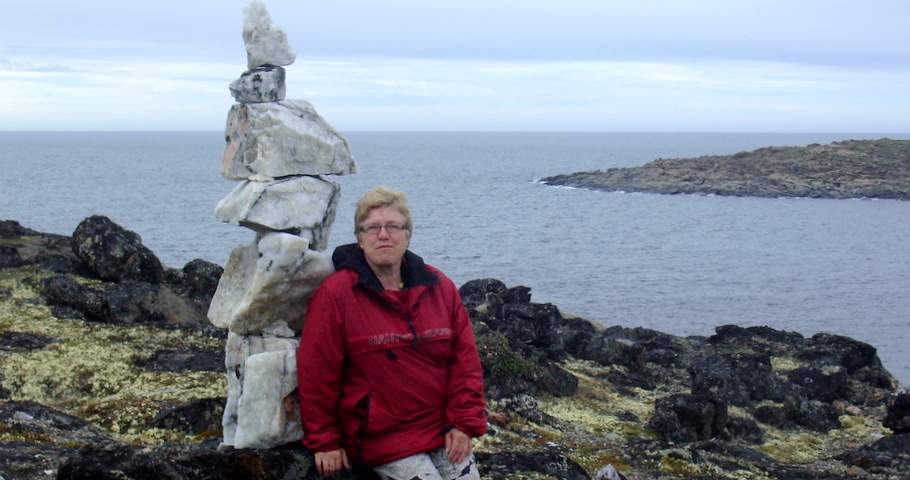How do they think they will organize community efforts to build resilient families and individuals?
How do they think they will teach non-violence and components of healthy relationships while developing codes of conduct that promote respect and strengthen non-violence?
How will they deal with poverty, food shortage, violence, suicide and generalized gender inequalities serving as prerequisites for trafficking in women and how will they protect their girls?
How will find the resources to ensure the children are safe?
Most of the time, the family is the authority on their children
Most of the time, the family is the authority on children and the backbone of the Inuit communities. Their past experiences on the tundra and during the colonization certainly give them strength, but they have inevitable constraints. There are obstacles related to housing, costs, and logistics. So many questions should be examined. Might operating a safe house/respite home be difficult in most communities because of the lack of qualified resources? Will a safe-house/respite home for the children help them to move forward to a happy and healthy future?Inuit women are the community's building blocks
Inuit women are the community's building blocks and it is them that preserve and revive links in all communities. Social action for women in the community and beyond reveals a strong gender consciousness. However, there are tensions between the vision maintained by women of their role as family caregivers and the need they feel to protect themselves in a case of breakdown of the family.Traditional knowledge should be taken into consideration
Communities must participate in all phases of each project development and traditional knowledge should be taken into consideration in any program. Our modern societies are living a crisis of values that are related to the foundations of their institutions. The many problems of poverty, exclusion, youth suicides, gender equality, women's rights in their own way reflect this crisis of values.The deep and persistent poverty and domestic violence in the North have serious repercussions on the well-being and development of children. Many have observed that "children who grow up in violence suffer more health problems than children in a harmonious family. Less educated, they are more likely to be less qualified for good jobs as adults.
The United Nations Convention on the Rights of the Child
Although Canada is a signatory of the United Nations Convention on the Rights of the Child, which promises to ensure that all children are offered the opportunities they need to grow on cognitive, physical, social-emotional and spiritual, it appears that indigenous peoples are still far behind. The development situation in young northern children is a source of concern. When children live in conditions of physical and social inferiority, they are exposed to risk factors that lead later to situations that will affect their development.My experience allows me to be optimistic
Although these factors do not produce an immediate effect, their learning ability can be affected, which may cause a low level of schooling. The "cumulative effects" on a child living in conditions of material reduction and social impairment suggest that such a disadvantage can lead to an intellectual and emotional deficit. The risk of ending up in crime statistics and unemployment is increased by the deterioration of the social safety net. My experience, recent enough, still allows me to be optimistic because if one has the impression that the situation has worsened, we also see that Aboriginal and Inuit are increasingly aware of their rights and know that now they can report any injustice.Women work to fight against the risk factors that contribute to domestic violence
Women are more and more supportive of each other and have joined forces to improve their lot and have access to legal and other services. One of the aspects on which women have worked is to fight against the risk factors that contribute to domestic violence. Family factors include family poverty, substance abuse of parents, violence. Add to that the lack of employment opportunities in a context of poverty and marginalization.The government should play a role in building new social housing
Several issues are crucial in the coming years. The rising costs in the health field, not to mention a loss of tax revenue for the provinces should encourage the government to play a role in building new social housing in the North. The rights of women and the most vulnerable children, the fight abuse, efforts to provide food security and acceptable housing, indicate that the time has come to take action.Factors that should be recognized include inadequate living conditions, poor housing conditions, unstable employment situations. According to Minister Carolyn Bennett, we did not need a commision to find out the problems facing many communities. It should, however, that solutions meet the needs. With the support and participation of key affected communities, sources and the best methods for eradicating the problems may be inspected and to parts of a concrete promise.
There are many places where the provinces and Canada can act: shelters for abused women, appropriate housing, on education, on efforts against sexism and racism on the child welfare services. Adequate training of stakeholders to work the fight against violence against Aboriginal women is essential. The social services system must sufficiently understand these situations, not only to ensure the long-term safety of girls and women but to get the cooperation of men and offer justice. This is the field that we must act. Priority should be given to guidelines set by the communities.








No comments:
Post a Comment